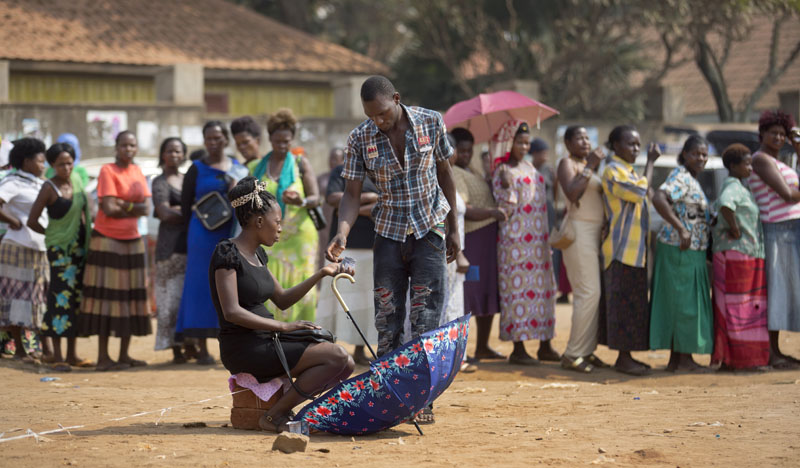Uganda opposition leader under house arrest amid tensions
KAMPALA: Uganda's security forces on Saturday put the main opposition candidate under house arrest to prevent him from leading protests as the country awaited the results of a disputed election.
Police took "preventive measures" against Kizza Besigye to stem further unrest, police spokesman Fred Enanga told The Associated Press.
The elections on Thursday were marred by late delivery of polling materials, sporadic violence and a government shutdown of social media. Partial results from about 75 percent of the vote show long-time President Yoweri Museveni leading with over 60 percent against Besigye's 35 percent.
The final tally is expected later on Saturday.
Police on Friday surrounded the headquarters of Besigye's party, the Forum for Democratic Change, as Besigye met with party members, and a helicopter fired tear gas at a crowd outside. Police then moved in and took Besigye, a 59-year-old doctor, to an unknown location. He was later taken to his house overnight.
Besigye's party has alleged massive vote rigging, and has accused the government of deliberately stalling voting in areas seen as opposition strongholds and orchestrating violence.
"We have to contain the situation," Enanga said. "We have reasonable cause to prevent him from promoting actions of violence."
Police prevented journalists from accessing Besigye's home on the outskirts of the capital, Kampala.
After Besigye's arrest on Friday, his supporters took to the streets. Riot police lobbed tear gas and stun grenades at them and fired warning shots from automatic rifles, then chased them through narrow alleys, arresting some.
US Secretary of State John Kerry spoke by phone with Museveni "to underscore that Uganda's progress depends on adherence to democratic principles in the ongoing election process," the State Department said. Kerry urged Museveni to rein the security forces.
The 71-year-old Museveni took power by force in 1986 and pulled Uganda out of years of chaos after a guerrilla war. He is a key US ally on security matters, especially in Somalia.
Critics fear he may want to rule for life, and they accuse him of using security forces to intimidate and harass the opposition.
Besigye was Museveni's personal physician during a war and served as deputy interior minister in his first Cabinet. He broke with the president in 1999, saying Museveni was no longer a democrat.






